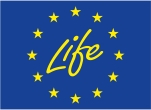On 5 July 2023, the European Commission published its legislative proposal to deregulate the new generation of genetically modified plants (new GMOs, or now so-called ‘new genomic techniques’ or NGT).
The proposal abolishes labelling requirements, safety checks and any type of liability processes for new GMOs. As a result, consumers, farmers, and food processors will no longer have transparency on whether the plants and food they grow, buy and eat contains new GMOs or not.
Mute Schimpf, food campaigner at Friends of the Earth Europe said:
“The European Commission is choosing to give in to a long-lasting campaign from big corporations instead of protecting citizens’ rights. It’s appalling to see that the Commission basically says agribusiness do not need to bear the risks of releasing untested new GMOs into our fields and plates, but consumers, farmers and nature do.”
Friends of the Earth Europe now calls on Europe’s environment and consumers ministers, as well as members of the European Parliament, to reject the Commission’s proposal. Both the EU Council and the EU Parliament will have a say on the final law in the coming months.
The European Commission’s deregulation proposal means:
- Releasing untested new GMOs into nature. So far, the direct and indirect impacts of putting new GMOs in the wild have not been assessed. For instance, no research has been conducted on how new GMOs interact with bees and other pollinators, nor on how GMO cropping can speed biodiversity loss.
- Abolishing consumers’ right to know as defined in the European treaties as well as in EU’s general food law. By excluding new GMOs from labelling requirements, consumers, farmers and the whole food chain can no longer know if the seeds, ingredients and final food products they buy contain new GMOs or not.
- Depriving governments of their right to ban the cultivation of new GMOs on their territory. Since 2015, 17 governments have already banned the cultivation of GMOs.
- Abolishing basic responsibilities for biotech industry such as delivering a testing method for each new GMO they develop. The new legislation makes it impossible for farmers and the food sector that want to produce conventional, organic or GMO-free food to protect themselves against unwanted contamination. The European Commission proposes to have testing methods be paid by those who want to avoid new GMOs and to remove public cultivation registers.
- Making it impossible for national authorities to control food safety of new GMOs as the biotech industry is no longer required to provide testing methods, nor are the operators obliged to trace the product along the food chain.
- Setting a precedent for corporate-driven law-making. The European Commission proposal is based on promises made by the industry about products that are currently still in the pipeline, without baseline or independent assessment on the actual sustainability of new GMOs.

This publication is co-funded by the European Union. Views and opinions expressed are however those of the author(s) only and do not necessarily reflect those of the European Union or CINEA. Neither the European Union nor the granting authority can be held responsible for them







